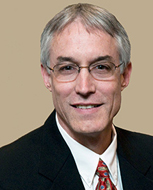
Practice Name
Advanced Fertility Center of Chicago 30 Tower Ct Suite F Gurnee, IL 60031
Telephone
(847) 662-1818
Website URL
http://www.advancedfertility.com
Biography
Dr. Sherbahn founded the Advanced Fertility Center of Chicago in 1997 and serves as our program director and laboratory director. He is board-certified in both reproductive endocrinology and infertility, and in obstetrics and gynecology. Dr. Sherbahn completed advanced infertility training with a fellowship in reproductive endocrinology and infertility at Rush-Presbyterian-St. Luke's Medical Center (now Rush University Medical Center) in Chicago. He received his residency training in obstetrics and gynecology at Oakwood Hospital in Dearborn, MI and earned his medical degree from the John Burns School of Medicine at the University of Hawaii at Manoa in Honolulu, Hawaii. Attention to detail leads to higher success rates "Everything we do at AFCC is carefully planned to maximize your chances of having a baby - while treating you with compassion as an individual," says Dr. Sherbahn. "The quality control in our system has allowed us to maintain high IVF pregnancy and live-birth success rates over the years. "Infertility clinics across the U.S. submit their IVF success rate data annually to the CDC (Centers for Disease Control and Prevention) and to SART (Society for Assisted Reproductive Technology), which then publish information about each clinic's success rates," Dr. Sherbahn explains. Look up any IVF clinic's success rates on the CDC and SART websites "The 2007 national average for IVF live births for women under 35 was 43% per egg-retrieval procedure," Dr. Sherbahn explains. "In 2007, we had a 54% success rate. Our donor egg success rates are also excellent - we had a 73.8% live-birth success rate in 2007, compared to the national average of 55.2%. "By maintaining strict quality control, we have better-quality embryos for transfer. This allows us to transfer fewer embryos and achieve higher pregnancy success rates, while minimizing triplet or higher-order pregnancies," says Dr. Sherbahn. "We have also increased our use of single-embryo transfers, regarded by some as the ideal goal of assisted reproductive technology," he adds. An accomplished researcher and author Dr. Sherbahn has conducted research in reproductive medicine and has presented his findings to the American Society for Reproductive Medicine. His clinical articles have been published in Human Reproduction, the Journal of Assisted Reproduction and Genetics and the Journal of Reproductive Medicine. He has also conducted presentations for the American Society of Reproductive Medicine, the Chicago Association of Reproductive Endocrinologists, Rush University and Resolve. 'This is such a diverse, challenging specialty' Dr. Sherbahn's interest in in-vitro fertilization (IVF) dates back to 1985. "When I was a first-year med school student at the University of Hawaii, one of the physicians from the IVF program came and gave a lecture," Dr. Sherbahn recalls. "The first IVF baby was born in 1978, so the specialty was still very young at that time." "I thought IVF was fascinating - but at the time I wanted to be a family-practice doctor," he says. "Then, as I went through med school, I decided to specialize in OB/GYN. I became very interested in reproductive medicine in the third year of my four-year OB/GYN residency, when I did a rotation in reproductive endocrinology and infertility. "Infertility is such a diverse, challenging specialty - and very interesting," says Dr. Sherbahn. "When I started my reproductive endocrinology and infertility fellowship training in 1993, many details regarding how to perform successful IVF cycles were still being figured out. A lot of progress and improvements were made in infertility treatment from the early 1980s through the late 1990s. Success rates improved dramatically and the field continues to advance. "Today, assisted reproduction has been refined even further - the culture systems, the technology and techniques, the ultrasound equipment," he adds. "We know much more about what matters and what doesn't, but there's always more to learn."
Certifications
Obstretics & Gynecology Reproductive Endocrinology & Infertility Specialty: Assited Hatching Services Blastocyst Services Cryopreservation Services Donor Egg Program Embryo Donation Embryology Services FET Services - Frozen Embryo Transfer Hysteroscopy ICSI Intracytoplasmic Sperm Injection Infertility Services Only IVF Program PESA Polycystic Ovarian Syndrome specialty services TESA
